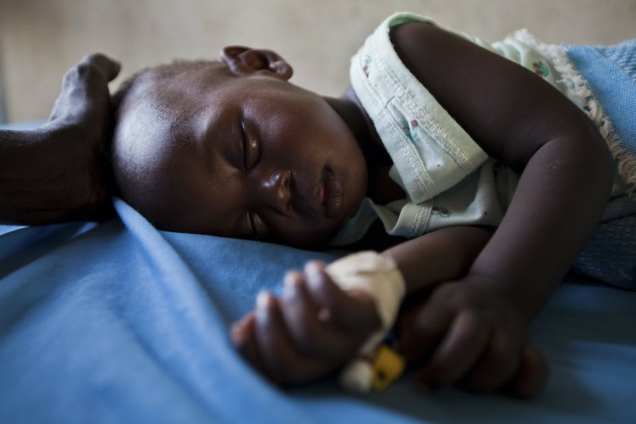The Northern Region Health Directorate will between June and July this year begin administering the Malaria Kimo preventive therapy for children under five in the region.
According to the Directorate, about 60 per cent of malaria cases recorded in the region usually are children hence the target group for the Malaria Kimo treatment.
The Deputy Public Health Director, Dr Hilarious Abewu in an interview with Joy News said the idea is that if a child gets treated for malaria today and the next day he or she gets bitten by a mosquito they can contract malaria.
But if they are treating the children after every four weeks it’s unlikely that the child will retrogress to have malaria.
“Within this period these children are treated they are unlikely to be infected with malaria,” he added.
Dr Abewu said the challenge is normally associated with children who live in hard to reach communities who are normally cut off from the rest of the country during the peak of the raining season.
He added that it is not surprising that children from such areas get to the hospital after their malaria has become severe.
According to him, preparations are underway for the periodic mass distribution of mosquito nets for household by June this year.
Dr Abewu also noted that the lava spraying at targeted areas in the region would also be done in a bid to kill the multiplication of mosquitoes.
He said with the emergence of Covid-19, the tendency was to shift focus to try and contain the disease but noted that with most people not visiting hospitals, that affected the routine of malaria services in the initial stage.
He noted that after the first two months they had to reorganise, realising that if they are not careful the number of people who were going to die from malaria and other diseases was going to far exceed the number of people who were going to die from Covid-19.
He said they needed to quickly organize their staff and management to ensure that they find appropriate ways of continuing to provide health care even in the midst of Covid-19.
Dr Hilarious said Covid-19 has not affected the funding of malaria in the region, adding that most of the interventions they plan for last year, like the seasonal malaria chemo prevention, indoor residual spray among others were done.
Latest Stories
-
We’ll embrace cutting-edge technologies to address emerging healthcare needs – Prof. Antwi-Kusi
21 minutes -
Nana Aba Anamoah, Cwesi Oteng to attend Philip Nai and Friends’ charity event
26 minutes -
Environmental protection officers receive training on how to tackle climate change
29 minutes -
CLOGSAG vows to resist partisan appointments in Civil, Local Government Service
2 hours -
Peasant Farmers Association welcomes Mahama’s move to rename Agric Ministry
2 hours -
NDC grateful to chiefs, people of Bono Region -Asiedu Nketia
2 hours -
Ban on smoking in public: FDA engages food service establishments on compliance
2 hours -
Mahama’s administration to consider opening Ghana’s Mission in Budapest
2 hours -
GEPA commits to building robust systems that empower MSMEs
2 hours -
Twifo Atti-Morkwa poultry farmers in distress due to high cost of feed
2 hours -
Central Region PURC assures residents of constant water, power supply during yuletide
2 hours -
Election victory not licence to misbehave – Police to youth
2 hours -
GPL 2024/2025: Nations thrash struggling Legon Cities
2 hours -
Electoral offences have no expiry date, accountability is inevitable – Fifi Kwetey
2 hours -
Ghanaians to enjoy reliable electricity this Christmas – ECG promises
2 hours

